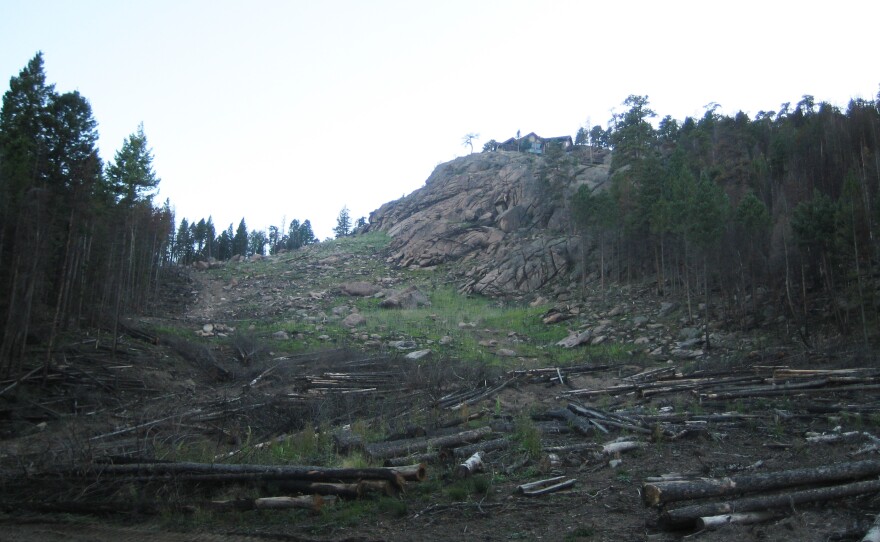
Judy and Harry Gaylor live in the mountains of Evergreen, west of Denver. The 70-acre stretch of land is covered with aspen and lodgepole pines and has been in Harry's family for close to a century. But, last year, a wildfire came dangerously close to burning his family house to the ground.
Harry credits volunteer firefighters from Evergreen Fire Rescue for containing the wildfire as it raged towards their neighbor's house.
In Colorado, half of the state's population is served by volunteer firefighters. But an ever-shrinking volunteer pool in Colorado and across the nation is leaving many communities at risk.
National figures show the number of volunteer firefighters has been steadily falling each year. State data compiled by Rocky Mountain PBS I-News indicates that Colorado alone needs an additional 3,500 volunteers to meet National Fire Protection Association standards.
Brita Horn lives on a ranch between Vail and Steamboat Springs, Colo. She's the county treasurer and is running for re-election. Horn is also a part-time emergency medical technician. On top of all of that, she's the volunteer fire chief of the Rock Creek Volunteer Fire Department.
She says the department is "always short-handed."
Horn says that before the terrorist attacks of Sept. 11, 2003, the closest fire department was about 40 minutes away. But that tragedy made her want to do more for her neighbors.
"We never had a station before that, or a fire department before that," she says. "And we realized we really needed to do something we needed to take care of each other."
Garry Briese, head of the the Colorado State Fire Chiefs, says that the challenges faced by volunteer fire departments in Colorado mirror those across the country.
His group recently won a federal grant to recruit volunteers and train departments to improve retention.
"You want well-trained people, but at the same time if you put those requirements in front of them it becomes increasingly hard to get them and keep them," he said. "We're short of volunteers and we're trying to reach out and recruit more, but it's a seriously uphill battle."
According to volunteers, their busy schedules and long hours of training are partly to blame.
Sean Simon is a captain with the Leadville/Lake County Fire-Rescue, which covers an area more than twice the size of Denver. He started out as a volunteer several years ago. He says low staffing numbers keep him up at night.
"If we get two calls back-to-back, or at the same time on different ends of the county, we can look at a half hour or 45 minute response time," he said. "It puts us in a terrible position."
Response times that fail to meet national safety standards are challenges the federal government and states across the country are trying to overcome. Federal funds are available to help volunteers cover part of their education costs and pay for new training units. But there's still a long way to go to break the backlog and make sure if volunteers do sign up, they're given the support and incentives to stick with it.
Copyright 2014 KRCC-FM. To see more, visit http://www.krcc.org.






